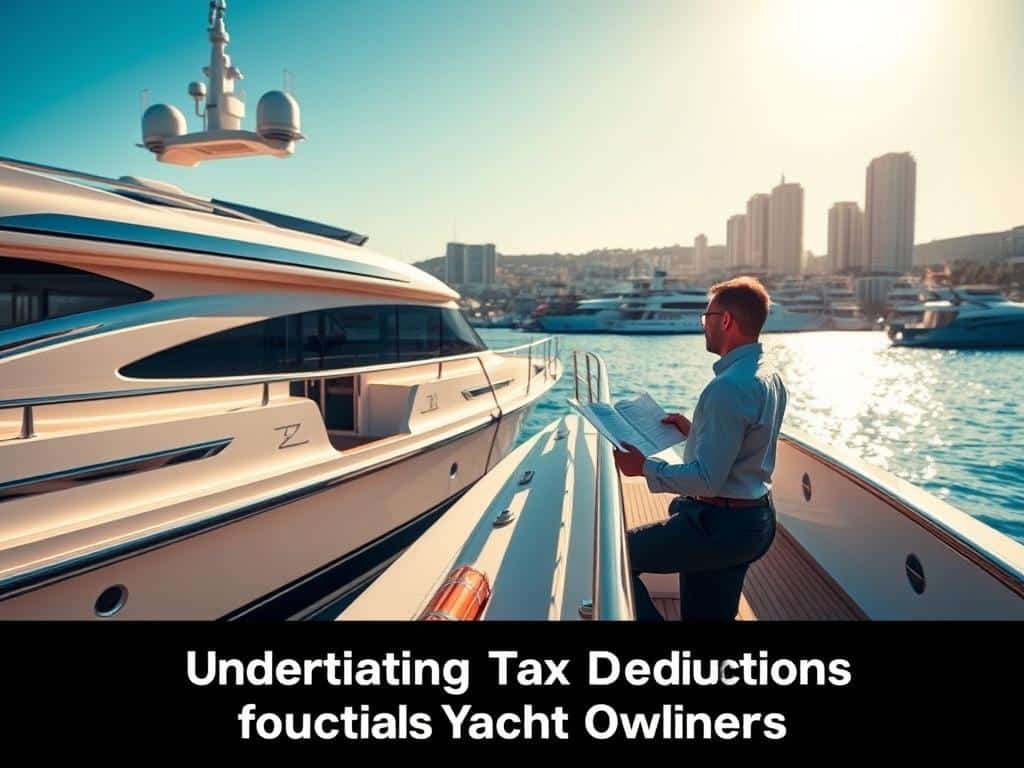As a yacht owner, I love the open waters and the thrill of sailing. But, owning a yacht comes with financial responsibilities. I learned that knowing tax strategies can help manage these costs.
Exploring tax codes can reveal many benefits for yacht owners. A tax professional helped me understand deductions I didn’t know about. This article will share tax strategies for yacht owners, so we can enjoy our boats without financial stress.
Key Takeaways
- Understanding tax deductions is key for yacht owners.
- Get advice from a marine business tax expert.
- Maximizing deductions can lower yacht costs.
- Know the difference between personal and business yacht use.
- Use depreciation for tax savings.
Understanding Tax Deductions for Yacht Owners
As a yacht owner, knowing about tax deductions is key to saving money. It’s important to figure out which yacht costs can be deducted. This helps lower my taxes. Costs like storage, insurance, and maintenance can be deducted, but only if they’re for business use.
What Costs Are Deductible?
Many yacht expenses can be deducted when filing taxes. These include storage, insurance, registration, fuel, and upkeep. Knowing what’s deductible can help me save money.
Personal vs. Business Use
It’s vital to know if my yacht is for personal or business use. If it’s mostly for fun, my deductions might be smaller. But, if I use it for business, like charters, I can get more tax benefits. Keeping track of how I use my yacht is key.
Using Your Yacht for Business Purposes
Using my yacht for business, like charters, can lead to more tax savings. The IRS says if my yacht is used for business over 50%, I can deduct more. This turns my yacht into a valuable business asset, not just a luxury item.

Tax Strategies for Maximizing Your Yacht Investment
Understanding tax strategies is key to getting the most out of a yacht investment. By exploring different methods, I can cut down on taxes and improve my finances. Important areas include using Section 179, treating the yacht as a second home, and taking advantage of depreciation.
Leveraging Section 179 for Immediate Deductions
Using Section 179 of the IRS code is a smart move for yacht owners. It lets me deduct the full cost of my yacht in the first year if it’s for business. The IRS allows up to $1 million in deductions, which is a big help for those who qualify.
Classification as a Second Home
Seeing my yacht as a second home offers tax perks. If I meet IRS rules, I can get mortgage interest deductions like a regular home. This can save a lot of money and make owning a yacht more attractive.
Depreciation Opportunities and Bonus Depreciation
Depreciation lets me spread out the costs of my yacht over time. Bonus depreciation adds to these savings for new yachts, giving me quick tax relief. Knowing about these can greatly reduce my taxes, letting me enjoy my yacht more while saving money.
Conclusion
Yacht ownership is more than just enjoying the sea. It can also be a smart financial move with the right tax strategies. I’ve learned that knowing what costs you can deduct and the difference between personal and business use matters a lot. This can make your yacht a more valuable investment.
Working with marine tax experts helps me make the most of yacht ownership. By understanding deductions and classifications, owning a yacht becomes a wise financial choice. It adds value to my life and boosts my finances.
Looking back, the right tax planning makes yacht ownership even better. It’s not just about fun and adventure. It’s also a smart way to grow my wealth.



